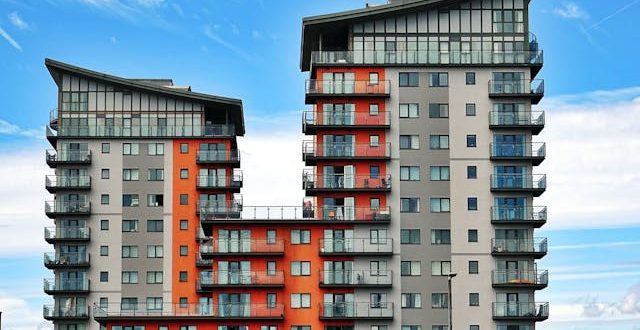The Apartment Conundrum
Moving into a new apartment can be both exciting and overwhelming. As renters, we all want to find a space that not only meets our needs but also aligns with our budget and lifestyle. Two of the most popular apartment types for individuals or couples are studio apartments and one-bedroom apartments. Both options have their appeal, but they come with unique characteristics that may sway your decision. Whether you’re looking for affordability, space, or location, this article will help you decide which apartment type fits your needs best.
What Is a Studio Apartment?
A studio apartment is essentially one open space that combines the living room, kitchen, and bedroom into a single room, with the bathroom being the only separate enclosed area. Studios are typically smaller in size, ranging from 300 to 600 square feet.
Pros of Studio Apartments
- Affordability: One of the most significant advantages of a studio apartment is that it’s generally more affordable than a one-bedroom apartment. Not only is the rent lower, but utility costs like heating and cooling are also reduced due to the smaller space.
- Minimalist Living: If you’re someone who thrives in a clutter-free, minimalist environment, a studio can be perfect for you. It forces you to think about what you truly need in your living space, encouraging a simple, streamlined lifestyle.
- Location, Location, Location: In competitive rental markets, a studio apartment in a prime location might be more affordable than a one-bedroom apartment in the same neighborhood. Studios can offer city-center living at a fraction of the cost.
- Cozy Vibes: With a smaller space, it’s easier to maintain a cozy, intimate atmosphere. If you enjoy spending time in a compact, well-organized environment, a studio apartment could offer the perfect ambiance.
Cons of Studio Apartments
- Limited Space: The biggest drawback to a studio apartment is the lack of space. With everything in one room, it can sometimes feel cramped or cluttered. If you’re someone who needs a lot of personal space, a studio might feel restrictive.
- No Room for Privacy: Since studio apartments are open-concept, there’s no way to separate different living areas. If you live with a partner or frequently have guests, this lack of privacy could be challenging.
- Storage Challenges: Studios typically have limited storage, which may make it difficult to organize your belongings without feeling overwhelmed by clutter.
What Is a One-Bedroom Apartment?
A one-bedroom apartment offers a distinct separation between the living room, kitchen, and bedroom. It provides more privacy and room to spread out, with square footage typically ranging from 600 to 1,000 square feet.
Pros of One-Bedroom Apartments
- More Space: With a separate bedroom, you have more flexibility to organize your space. You can designate different areas for relaxation, work, and sleep, leading to a more functional living environment.
- Privacy: A one-bedroom apartment allows for more privacy. If you have guests over, they don’t have to sit on your bed while they hang out, and you can retreat to your bedroom whenever you need some alone time.
- Better for Couples: If you’re living with a partner, a one-bedroom apartment can offer the right amount of space for two people to cohabitate comfortably without feeling too cramped.
- Resale Value (Long-Term Thinking): If you are planning to stay for an extended period, a one-bedroom apartment might provide better resale or rental value in certain markets compared to studios, especially if you’re in an area where families or roommates are searching for more space.
Cons of One-Bedroom Apartments
- Higher Cost: With more space comes a higher price tag. Rent for a one-bedroom apartment can be significantly higher than a studio apartment, especially in popular urban areas.
- Higher Utility Bills: More space means more energy consumption, leading to higher utility bills. Heating and cooling a one-bedroom apartment can cost more compared to a smaller studio.
- More Maintenance: A larger space requires more cleaning and upkeep. If you’re someone who values simplicity and efficiency, maintaining a one-bedroom apartment might be more work than you’re willing to invest.
Factors to Consider When Choosing Between a Studio and One-Bedroom Apartment
When deciding between a studio and a one-bedroom apartment, several factors should be taken into account:
1. Budget
The first thing to consider is your budget. Studio apartments are usually the more budget-friendly option, both in terms of rent and utility costs. However, if you’re willing to pay more for additional space and privacy, a one-bedroom apartment might be worth the extra expense.
2. Space Requirements
Think about how much space you need. Are you someone who works from home and needs a dedicated workspace? Do you have a lot of furniture or belongings that require storage? A one-bedroom apartment will give you more space to spread out, while a studio forces you to live more compactly.
3. Lifestyle Preferences
Your daily habits and lifestyle can greatly influence your choice. If you love to entertain guests or need separation between your sleeping and living areas, a one-bedroom apartment might be more suitable. If you prefer a minimalist, easy-to-maintain space, a studio could be perfect.
4. Future Plans
Consider your future plans. Are you looking for a long-term home, or is this apartment a temporary solution? If you’re planning to move in a couple of years, a studio might make sense as a cost-saving option. However, if you’re looking to settle down, a one-bedroom could offer more comfort and adaptability for future changes in your life, such as getting a roommate or starting a family.
FAQs: Studio Apartments vs. One-Bedroom Apartments
1. Are studio apartments only for single individuals?
Not necessarily. While studio apartments are often preferred by single individuals due to their size and affordability, they can also be a good fit for couples who enjoy minimalist living and don’t mind sharing a compact space.
2. Can you make a studio apartment feel bigger?
Absolutely! With strategic furniture placement, light colors, mirrors, and multi-functional furniture, you can create the illusion of more space in a studio apartment. Maximizing vertical storage is also key to avoiding clutter.
3. Is it worth paying extra for a one-bedroom apartment?
It depends on your needs and financial situation. If you value privacy and space and can afford the higher rent, a one-bedroom apartment may be worth the investment. However, if your priority is saving money and you can live comfortably in a smaller space, a studio apartment could be the better option.
4. Do one-bedroom apartments have better resale or rental value?
In many markets, one-bedroom apartments are easier to rent out or sell due to their appeal to a broader audience, including couples and small families. However, this varies depending on location and demand.
5. How much more expensive is a one-bedroom apartment compared to a studio?
The price difference between a studio and a one-bedroom apartment can vary significantly depending on the city, neighborhood, and building. On average, one-bedroom apartments can be anywhere from 10% to 50% more expensive than studio apartments.
Conclusion: Which Apartment Is Better for You?
At the end of the day, the choice between a studio apartment and a one-bedroom apartment comes down to personal preferences and priorities. If you’re looking for an affordable, low-maintenance space and are comfortable with a more minimalist lifestyle, a studio might be the perfect fit. However, if you value privacy, extra space, and the flexibility to have separate living areas, a one-bedroom apartment could be worth the higher price tag.
Whichever option you choose, make sure to consider your current needs, financial situation, and long-term goals. Finding the right apartment is about striking a balance between your lifestyle and your budget, and either option can be a great choice if it aligns with your priorities.
 Diverse Perspectives: Insights & Stories Exploring Ideas, Sharing Knowledge
Diverse Perspectives: Insights & Stories Exploring Ideas, Sharing Knowledge





